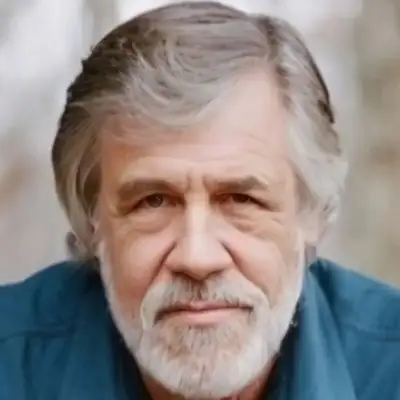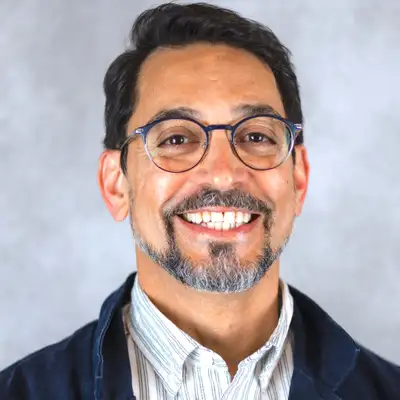Republicans Speak Out Against Trump
Heidi Heitkamp (00:00):
Everyone at the One Country Project were horrified by the assassination attempt against former President Trump last weekend. This episode was recorded before last weekend. It contains honest, authentic criticism of President Trump's administration's policies from Republicans and former Republicans, including an expert who served in that administration. This criticism is based on the real outcomes of actual policies, and we think it's fair and important for our audience to hear it. This is how we address the differences in our political views. Violence is never a way to resolve our differences, political or otherwise. We deplore it. Thank you for listening. Welcome to the Hot Dish, comfort food for Middle America. I'm Heidi Heitkamp.
Joel Heitkamp (00:55):
And I'm Joel Heitkamp.
Heidi Heitkamp (00:57):
This is a very exciting episode. We're going to be speaking with former Homeland Security official and now author Elizabeth Neumann. Elizabeth recently released a groundbreaking book called Kingdom of Rage: The Rise of Christian Extremism and the Path Back to Peace that delves into some of the most pressing issues of our day. We'll dive into her experiences, her insights, and the powerful message of her book. So stay tuned. First, I want to share something special with you. Chris Gibbs, a former Republican leader and long time farmer from Shelby County, Ohio, joins us today to discuss his remarkable political journey.
Chris Gibbs (01:42):
Well, hi, my name's Chris Gibbs. I live in Western Ohio. I'm currently a full-time farmer, corn, soybeans, wheat, alfalfa hay, and we've got 90 beef cows as well. I spent 30 years with USDA as local director managing federal farm programs. I tell people that I have a sordid past. I started out as chair of the local Republican Party and now as of September, 2023, I'm chair of the local Democratic Party. I'm not sure anybody else, maybe even in the nation has pulled off that feat, but it's important to know how I got there. What really thrust me into, I guess maybe even a national debate, was tariffs. The previous administration in early of 2018 started to apply tariffs in my view as a punitive measure to all of our traditional trading partners.
(02:43):
And by the way, traditional allies, European Union, Canada, Mexico, Australia, Japan, and I called that out. And the reason I did is because the moment that those tariffs were applied to those countries and our allies, they retaliated, as they should have, to protect their product base. And at that moment, almost overnight, I lost 20% of my value of my soybean crop, which cost me tens of thousands of dollars. So that really hurt, that thrust me into certainly a national debate. My opinion of how the administration tried to assist, and if this was a video podcast, I would be holding my fingers up in quotes so how the administration tried to assist at the time, they tried to alleviate the financial pain that farmers were experiencing because of the tariffs and retaliation.
(03:43):
So what they did was raid the commodity credit corporation to pay farmers' restitution. I was still sitting on this Republican Center committee in 2018 when I spoke out against these tariffs, and particularly the money which I called hush money that was being paid to the American farmer. I spent 20 years in local Republican Party leadership, seven of that as chairperson. I wrote what I would call a pretty scathing op-ed that set off a firestorm literally within my local Republican Party leadership. Again, I wasn't chair at the time, but I was still active in the party. What became very evident is within the Republican Party, there's only one voice, and if you don't speak with that voice, then you are ostracized to be kind or vaporized to be less kind.
(04:39):
So immediately what happened is certainly I lost many of my friends, which I realized later were friends of proximity to the chairperson of the local Republican Party and then what I represented. So I moved through that and I said, "You know what? This is not where I need to be. This is not the party that I served for 20 years that was founded, in my view, of diplomacy, statesmanship, personal responsibility, compassion for your fellow man." Those are the tenants that I was trying to follow. So I left and became independent, and I hung out a while as an independent before I ended up joining the Democratic Party. But we have to back up from there, and that comes in an explanation of how tariffs work.
(05:27):
When you apply a tariff to a foreign product that's coming into the United States, the foreign government, the foreign company does not pay that tariff. When products come into the United States, they're not sent from a foreign country. They're purchased by a US manufacturer, a US company who needs that product or needs a portion of that product to complete their sales for the US consumer. So when that product comes from China or from Mexico or you name the country, the US importer who hires the US labor, who has US buildings, who pays US taxes, they have to pay that tariff directly to the US Treasury. So what the administration did is they then raided the Treasury through the Commodity Credit Corporation raided the Treasury and took the tariffs dollars that US manufacturers paid and gave them back out to farmers. And I apologize for the somewhat convoluted explanation, but it's important for listeners to understand that when an administration, when a president stands up and says, "China paid for these tariffs, Mexico paid for these tariffs, Japan paid for these tariffs," that's just not true.
Heidi Heitkamp (06:55):
Welcome back to the Hot Dish. And I am so thrilled today to be speaking with former Homeland Security official and author and great friend of mine, Elizabeth Neumann. We didn't know each other two years ago, but I feel like we are kindred souls and we've been traveling a lot together on our little project called War Game, but that's not what I want to talk about today. Instead, I want to talk about your incredibly thought-provoking book titled Kingdom of Rage: The Rise of Christian Extremism and the Path Back to Peace. There is a lot of concern about the direction that the country is taking, Elizabeth, and a lot of that is because of these divisions and certainly looking for some of the root cause of that friction. We would be remiss if we didn't say some of that was religious identity. And so if you could just talk a little bit about what brought you to this subject of Evangelical Christians and where we are right now in the United States.
Elizabeth Neumann (07:56):
Thanks, Heidi, and it is such a fun joy to be with you on your podcast. Look, I've been in the Homeland Security field for 20 years. When you served on the Senate Homeland Security Committee, I briefed you. I was a staffer, so you were probably not paying too much attention, but my field is Homeland Security. I moved into it. I was serving on the George W. Bush administration and I ended up serving on the White House Homeland Security Council. It was a part of a small team that worked on the threats to the homeland during that post 9/11 period before we had the National Counterterrorism Center, before we had some of the aspects of the Department of Homeland Security that took on functions of monitoring threats to the homeland. It was this small team that sat in the White House situation room and I had the privilege to be a part of it and learn from some really incredible operators about how to track threats from Al-Qaeda.
(08:51):
And that kind of formed me and formed my view of the world. And I found myself getting recruited back into the Trump administration. That wasn't my first choice to go back into his administration. I actually declined two times before going back in, but I ended up in this role as assistant secretary for counterterrorism. And we were still focused on ISIS at the time. "How do we defeat ISIS and how do we make sure we don't have more of these hungry and violent extremist attacks inspired by ISIS in the homeland?" And around the same time, we started seeing what to us felt very novel, these spate of attacks coming from not ISIS inspiration, but other domestic forms of terrorism. And it turns out, if you look at the data, with the exception of 9/11, the preponderance of attacks, deaths and plots have come not from ISIS and Al-Qaeda, it has come from US citizens inspired by what we consider domestic violent extremist ideologies.
(09:53):
So racially motivated ideologies, predominantly white supremacism and anti-government ideologies predominantly of the militia-type variant. And in coming to that discovery during the Trump administration, I became quite outspoken that we have a pretty significant threat here in the United States, and we are not prepared for it. We do not have the tools in place to address it. And I was quite outspoken about that to the point where I was somewhat pushed out of the Trump administration eventually for trying to sound the alarm to this growing threat of domestic terrorism in our homeland. And then we went through 2020, we went through the summer of 2020, which was not what I would consider a traditional domestic terrorism type of activities. It was more protest, counter-protest melee. But we did have a few individuals, a attempt attacks or commit attacks.
(10:45):
And then we had January 6. And in both the summer of 2020 and in January 6, what we were also watching online was these traditional domestic terrorist groups become very emboldened, very excited almost that the thing that they had been forecasting this moment of societal collapse was there, and they were excited to take part of it. And this is a core part of their ideology, this idea that society is so broken, we just need to usher in its demise through various tactics, through attacks, through death, and then we can rebirth something new. Everybody has a slightly different outcome that they're hoping from the societal collapse, but the core is we need to usher in the societal collapse, which is quite difficult if your job is to secure and keep the peace and you have these multiple factions converging together.
(11:37):
And here's the thing, on January 6, it just really hit home for me as I was watching those scenes pour in. For 20 years, we have worked to protect the US homeland from Al-Qaeda and ISIS. For 20 years we were so thankful that the brave men and women of Flight 93 protected the US Capitol from destruction. And here we were 20 years later watching our Capitol be destroyed. But it wasn't from ISIS and Al-Qaeda, it was from us. And when I use that term, us, I mean that very personally for me. You had people with pictures of Jesus or artists renderings of Jesus wearing MAGA hats. You had people carrying Bibles, you had people carrying signs and symbols that are associated with Christian theology, just both present and past.
(12:28):
And then in the Senate chamber, you had the QAnon shaman say a prayer that with a few tweaks could have been said on any Sunday morning in any mainstream church in America. And he closed it in the name of Jesus, who I professed to be my Savior, except the thing that he was giving thanks to the father for was being able to ransack the Capitol. And it just was so mind-blowing to me that my faith was being used to justify violence. And it was a violent moment, January 6. It was not 9/11 by any stretch in terms of loss of life, but there were five law enforcement officers, Capitol police officers that were killed due to their injuries they incurred on that day. There were 150 that experienced pretty severe injuries. Some of them were not able to return to work.
(13:15):
It was a violent day. Yes, there were people in various places that were peaceful, but there were a lot of people that were not peaceful and they were doing it using my faith and my political background, Republican by background, conservative. And they were using these conservative theories to justify what they perceived to be a revolution. And I think it's a distortion or a heretical interpretation of Christianity, but we can't ignore the fact that there's threads of Christianity being brought through these extremist movements and that needs to be condemned.
Heidi Heitkamp (13:49):
One of the cases that you make is that this complicates this whole issue of trying to reestablish the peace or reestablish some cohesion within our body politic. So can you talk a little bit about your book, what you explore in this book, and anybody who would read it, what would they expect to learn?
Elizabeth Neumann (14:09):
I wrote the book intentionally for a Christian audience or people that formally identify as Republicans or maybe still identify as Republicans but are not happy with the direction that the party has taken for the purpose of trying to help us understand what happened. How did we get to this place? I mean, usually when I speak to audiences, inevitably I have people come up afterwards and say, "This is my uncle, this is my brother, this is my father." It is pretty prolific the number of people that have embraced what I define as the lower end of the hostile action spectrum of extremism. And so the purpose of the book is to help those who are to wrap their minds around, "How did we go so quickly?" As you said, it's only about 10 years that we went from, it used to be just a hard and fast rule that if you are going to be an influencer or on the public stage, that of course you would condemn violence.
(15:08):
And now we have these leaders who are, some of them are unabashedly making arguments that now might be the time you need to be prepared. You had Kari Lake Senate candidate for Arizona in April make this reference to a passage in scripture, "You need to put on your spiritual armor," which is taking your fight to the Lord and letting the Lord fight on your behalf is kind of a quick way to explain it. But she says, "Yes, we need to put on our spiritual armor and we might need to strap on a Glock." And she's not saying, "Let's go kill somebody," but somebody that hears that will interpret it that way. And we have plenty of data over the last 10 years to demonstrate that when we have increases in violent rhetoric, suggestions like what Kari Lake made, that there are people that then go out and do harmful things.
(16:01):
And it might not be a mass attack, but we see hate crimes go up. We see bullying online and hateful rhetoric online go up. And I realize that's not the same as a criminal action in real life, but bullying and harassment online definitely affect the targeted group's mental health. It has consequences that we're just now beginning to understand. So we know that when we have politicians with platforms use this violent rhetoric that it results in real life harm. So the book is to help people understand what's happened to our community, but the part that I'm most passionate about is the, "What can we do about it?" Which is the second part of the book.
(16:40):
And it is written from a Christian lens, actually uses scripture to help connect us to some of the social science, like, "What can we do to help protect our kids? What can we do to help build resilience within our broader communities, within our churches and with our friend groups?" And it designed to be an equipping conversation, but it really is more... It's a survey and there's a lot of resources that I point to that people can, once they've read this, go and use to continue the effort to build protective factors in our community and hopefully begin to restore ourselves back to that path of peace.
Heidi Heitkamp (17:18):
I want to talk a little bit about the role that religious leaders can play. I've gotten to know Russell Moore very well, long time since spiritual and intellectual leader of the evangelical community, as conservative as you can get, but saw the threat that was coming with inviting more militant groups into the discussion. And so he has now been on the oats, and I'll just tell you a quick story. He was presenting at the Institute of Politics at the University of Chicago, which is where I work. And during his discussion, I ran into a young activist in the Republican Party on campus and said, "Did you get a chance to listen to Russell Moore?" And he said, "I don't like him. He's not pro-Trump enough."
Elizabeth Neumann (18:05):
Yeah, the leadership function is so important here because this is not a problem that will be fixed at a national level. It was created at a national level. You can mass radicalize, you cannot mass de-radicalize. It would be wonderful if some of our journalistic outfits would be behave more appropriately. That would definitely help. But once somebody is in this mind state of whatever ideology that they've latched onto, it requires one-on-one work for that person to disengage and to hopefully de-radicalize. De-radicalization is actually quite hard and the community is still working on how you do that at scale. But the things that we know so far is that it has to be one-on-one, which means that the way we fix this problem is at the grassroots. And you need leaders equipped to be able to help their communities do this work at the grassroots.
(18:55):
So pastors are really important, elders in churches, Bible teachers, anybody that's engaged with youth, that's huge. And even in Russell talks about this in 2016, it was very much a hold your nose and vote forum coming from a lot of evangelical leaders. But by 2018, that shifted and it is almost cult-like. They will explain like, "No, he doesn't exemplify Christian values." But then they usually go on with some argument of, "I'm not electing my Sunday school teacher. I'm electing my president and he doesn't have to have Christian values." Which is really funny given there's also this Christian nationalist movement underway where we are trying to make our government more Christian, but yet they're still totally cool with the leader of that effort to be somebody who does not exemplify Christian values.
Heidi Heitkamp (19:44):
What's interesting to me, Elizabeth, is this sense that it doesn't matter because the Lord frequently uses an imperfect vessel to advance an agenda. And so it's kind of like it's the excuse that I hear repeatedly that it doesn't matter how he behaves as a person, what matters is what he does. And in fact, I recently interviewed a very prominent Republican governor who he was asked the question, "Does character matter?" And he said, "No. What matters is what you do."
Elizabeth Neumann (20:15):
It's super hypocritical of the Republican Party to be like, "Character matters," in the 1990s, and making all these cases why Bill Clinton needed to be impeached. And then we jump forward and be like, "Oh, it doesn't really matter. We were just kidding." I don't even understand that argument. And I guess maybe because I was coming into adulthood when that whole Bill Clinton, Monica Lewinsky stuff with the Ken Starr, that was my early formation into politics. And it actually is rather jarring to realize like, "Oh, you guys didn't actually mean any of that. This was all a political stunt."
Heidi Heitkamp (20:56):
I always learn so much when I spend time with you, Elizabeth. I want to point this out because we didn't say this yet about your book. It is full of real intellectual rigor. By that I mean understanding of, "How does this happen? Why does it happen?" But our book is entitled Kingdom of Rage: the Rise of Christian Extremism and The Path Back to Peace, just an important, important book. And if you say, "Well, an election will clear this up, an election will not clear this up." One way or the other, we are in it for the long haul. And you're a visionary in this space, and I'm proud to call you my friend and to help educate more and more people the way you've educated me, Elizabeth.
Elizabeth Neumann (21:42):
Thank you, Heidi. It's such a joy to be with you.
Heidi Heitkamp (21:51):
Joel, we're just that many weeks closer to the presidential election. We're going to see what happens with the Republican Convention, what happens with the Democratic Convention. But I think there's a lot of people out there who are saying the same thing, whether they're liberal, conservative, what side of the aisle, they're real happy about the choice that they have. And I know you're hearing that on the radio as well.
Joel Heitkamp (22:16):
Yeah, I'm hearing it consistently more so now with the Democratic candidate, with the Democratic Party, I should say. Heidi, I have said this on talk radio. And I mean when I said it was long before any of this recent controversy, but we've got a two-party system. We talk about an independent like Kennedy or all of those type of things, but basically we have a two-party system. And both parties, in my personal opinion, they owe the nation an apology. If this is the way the two-party system is going to work, it leaves things open to start talking about a third party more.
Heidi Heitkamp (22:53):
Or looking at how we elect candidates in our political party. I've been intrigued by what they do up in Alaska, my dear friend, Lisa Murkowski, who, I mean, I think she's one of the remaining states people in the United States Senate. She tries to do the right thing. She's hard working. She is like what a senator should be, right? She's representing the state of Alaska. She's not showboating. She just wants to get it done. Well, she took some pretty tough positions, whether it was voting against Brett Kavanaugh as a Republican, whether it was in fact voting on impeachment, but she survived all of that in the state of Alaska because they changed the way they nominate their candidates for the ballot.
(23:40):
And that final, in her case, final four voting where the voters get four choices, they don't get two choices on election day, and then they rank them, that makes an opportunity for moderates. And so to me, she's an example of how... People always say, "What can we do to get rid of the extremes?" Just always having to vote for the extremes, always not having candidates that excite us, that motivate us to greater levels of citizenship. And I say, "We've got to change how we nominate candidates." And so I mean, have you given any thought to that kind of electoral reform?
Joel Heitkamp (24:18):
Well, I think everybody is right now. And the reason, more than anything, that you know it's an issue is nobody knows how it works. The average American right now has absolutely no idea how the parties actually nominate their individual so much so that I don't think the parties themselves know how they nominate an official. And that's because we never have these fights anymore, we don't. And I suppose I should use the word discussion, but we never go to a convention to make decisions anymore. And that's why these conventions have turned into fundraisers rather than anything else. They're an opportunity to have great big parties, which been there, done that. But my point in all of that is let people know the rules, let people know how we do things, and you can fix it.
Heidi Heitkamp (25:15):
I mean, you know this as a formerly elected official, especially in a small community, if people couldn't trust you, they weren't going to vote for you. If you didn't tell people the truth, they weren't going to vote for you if you cheated on your wife, they didn't like that. If you cheated on your husband, they didn't like that. And so there were all these kind of norms that people were expected to live by or suffer political consequences. Where did that go, Joel? What happened?
Joel Heitkamp (25:46):
Well, I have a different opinion than a lot of people. A lot of people thought that that went away with the advent of Donald Trump and social media. And it goes back, in my opinion, to my profession, what I do for a living. And I believe that the world started changing and became much more polarized when one individual used the format that was available because it was dying. I mean, it really was. It was dying. And he came in, found a way to turn it around, turn it into a profit, and he did so by being hyper-partisan and hyper-popular amongst a certain segment. And that's Rush Limbaugh. I mean, a lot of people don't think of him anymore because he's gone.
(26:31):
But Rush Limbaugh got the ears and the attention of the conservative movement to the point where we as progressives, myself, we had to listen to them to see what on people's minds in the middle of this country, in the plains states, in a lot of the rural area, they were listening to him. And so as we developed political strategy, he was a good gauge of what people were listening to. Now, it didn't mean we agreed with him. God forbid I didn't agree with him. But the truth is he had the audience. And because of that, I believe that Trump learned. I believe that Trump actually learned how to do what he's doing by the name calling, by the vicious, turning someone into something they're truly not. I think that that all came from the lessons of Rush Limbaugh.
Heidi Heitkamp (27:24):
And remember that Donald Trump gave Rush Limbaugh the highest honor of President can bestow. And your point is really well taken. Whether what Rush Limbaugh became the voice of the Tea Party movement, but he was also entertainment. And I think that Trump understands that rallies are entertainment. People go there to have fun. They don't go there just to listen to a political speech, and he's a call and response politician. And so I totally agree with you that you have to go back to the days of the Tea Party and Rush Limbaugh.
Joel Heitkamp (27:59):
With Limbaugh came it being okay to do what you said earlier, to lie. Rush Limbaugh had such a checkered past, and yet he made it okay to lie. And I know we don't use that word a lot here, but Donald Trump lies. I mean, he does. He lies. And in my line of work, you justify that at times by saying, "Well, I was just getting the phone lines going. I didn't agree with that. I just said that." That kind of crap. Well, Trump, he always plays that same card afterward, and by then he's moved on to the next day and the next piece of entertainment and nobody remembers what he said yesterday. Well, Limbaugh was the master of that, and I think that it started there.
Heidi Heitkamp (28:46):
Yeah, I don't doubt it. I mean, we'll see how the conventions play out. We'll see how the parties align. It really is the beginning of the campaign, although people think people never stop campaigning, which is true. But we've got to figure out, it seems to me in this country how we bring character back into politics. Okay, Joel, let's get to the important stuff. How's the pumpkin patch? People have been paying attention.
Joel Heitkamp (29:14):
I'll just be honest, it's not that good. The truth is I was drowned out in a huge portion of it, which is why I think I should have raised goldfish or something like that, tilapia. But the high ground is doing fine. We will have a crop, just not as big a crop as what I thought we'd have. I've done everything you have to do to show those pumpkins and those gourds that I love them. Now, we'll just see if they love me back.
Heidi Heitkamp (29:42):
I think this has been a fascinating episode, and I hope you do too. Let us know what you think and ask us questions or give us your suggestions. Email us at podcast@onecountryproject.org.
Joel Heitkamp (30:00):
Thank you for joining us today on the Hot Dish, which is brought to you by the One Country Project, making sure the voices of the rest of us are heard in Washington and DC. And you know what? Learn more, onecountryproject.org. That's it.
Heidi Heitkamp (30:16):
Dot, dot, dot.
Joel Heitkamp (30:18):
Why the hell not put a dot? Okay. Learn more at onecountryproject.org
Heidi Heitkamp (30:24):
And we'll be back in two weeks with more hot dish comfort food for middle America.
VO (30:28):
Voxopica.
Creators and Guests





